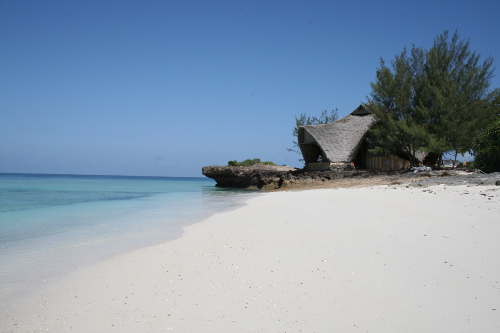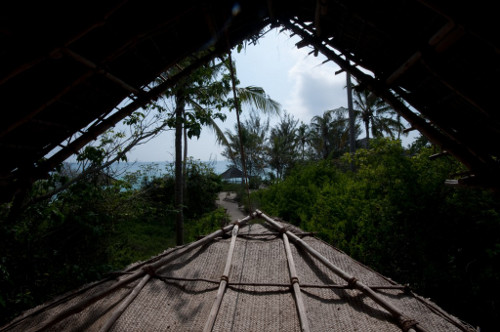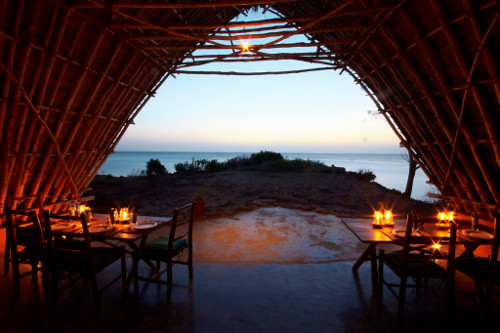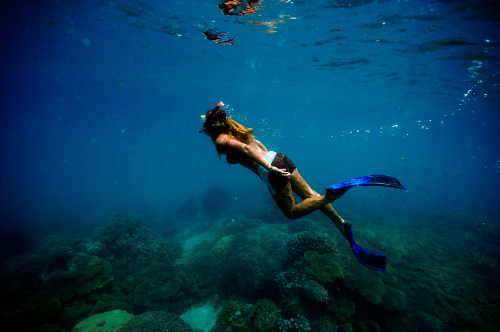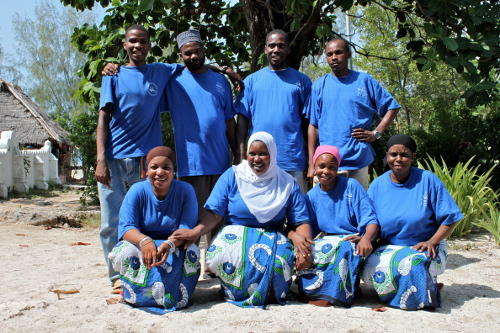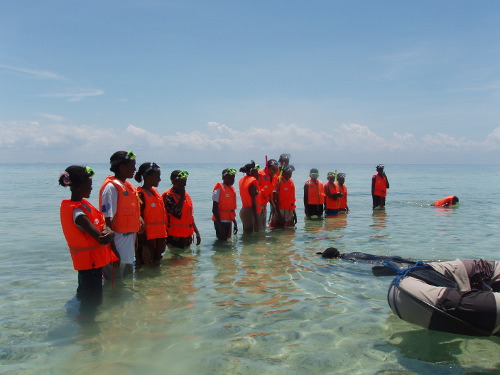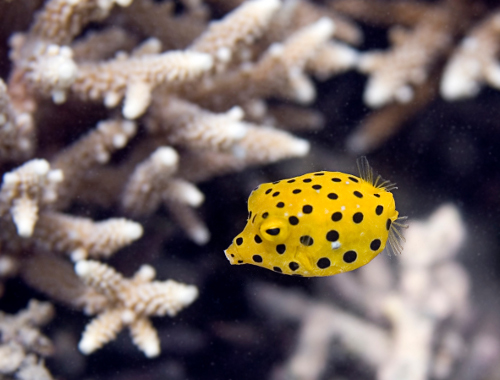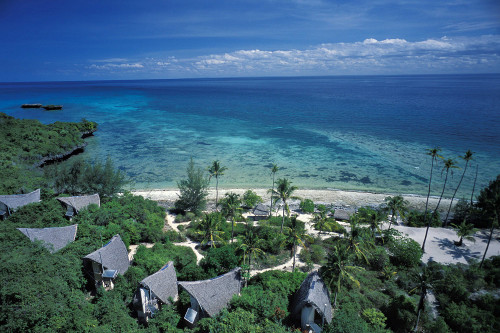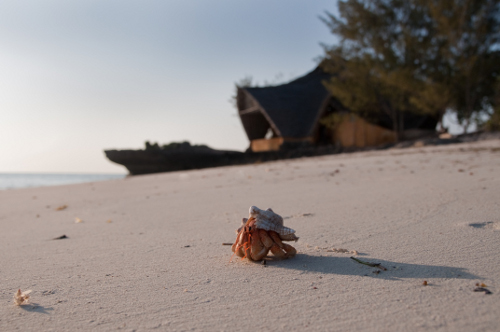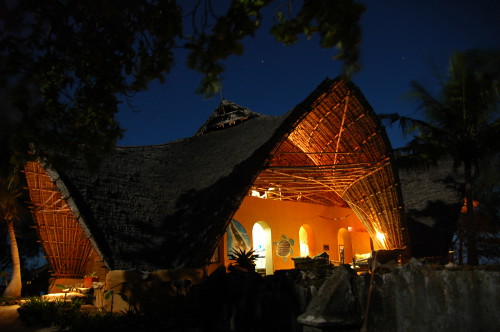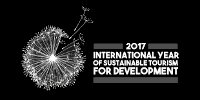Globally famous, experience amongst the most pristine coral reefs and best sustainable tourism in the world.
Chumbe Island Coral Park is a small island off the coast of Zanzibar, off the coast of Tanzania in East Africa. The first privately established and managed Marine Protected Area in the world, usually fully-funded through ecotourism, Chumbe Island was set up by Sibylle Riedmiller.
Explore the island’s stunning coral reef sanctuary and coral rag forest, relax in the exclusive eco-bungalows, savour traditional Zanzibari cuisine, all the while supporting conservation and education efforts. Chumbe Island is
“One of the most spectacular coral gardens to be found anywhere in the world.”
Be an Earth Changer:
Guests to Chumbe Island Coral Park fund conservation and education
Recommended duration: Minimum 3 nights
- more to relax and if you love the underwater world!
We connect you directly to the destination so locals benefit more:
The Place
On Chumbe Island, just seven thatched roof bandas (bungalows), are idyllically set in the surrounding forest, 30 seconds to the beach, offering natural beauty with privacy, yet a sense of freedom facilitated by the open design, providing natural air conditioning by the sea breeze. In fact, the only doors and windows anywhere on the island are in the 100-year-old lighthouse which offers spectacular views of the turquoise sea between Tanzania mainland and Zanzibar, especially for sunset.
Accommodation:
Bandas include a double or twin sleeping platform under a thatched area upstairs. Calm tranquility in nature abounds. The large living room, where tea and coffee is brought for you in the morning, features handmade furniture, African art and hammocks to add to the eco experience. To top it off, a section of the roof can be let down for a view of the ocean!
Dining takes places in the former lighthouse keeper's home which has been restored and remodelled into a giant-clam-shaped visitors’ centre and restaurant bungalow. Dinner can also be taken outside on tables set up in the sand or by candlelight on the beach.
Guests are offered typical Zanzibarian cuisine, a delicious blend of Asian, Arabic, African and European traditions, made from local produce to minimise waste, packaging, processing, pollution and food miles, transported in locally made, biodegradable baskets. This also helps raise awareness and pride in the local culture.
Activities: As the whole of Chumbe Island is a nature reserve, you can explore at leisure or with the guidance of experienced local rangers. Over 20 years as a protected area means an exceptional amount of biodiversity in rare and endangered plant, animal and marine life. All guided activities are included and scheduled daily.
Snorkel: Witness the breath taking beauty of more than 200 coral species on just one kilometre stretch of reef (90% of all coral species found in Africa) acting as a forest home, shelter and food for more than 450 fish species, plus turtles year-round, able to reside with enough food due to a no-take fishing zone and the park’s protected status. Be followed by Batfish, Spot Lobster, Blue-spotted Stingray, Giant Grouper, Oscar, a 1m+ potato grouper and large, colourful Parrotfish. Although SCUBA is not in the Chumbe Reef Sanctuary (except for research and filming activities), it is possible to enjoy diving on nearby reefs.
On the island: The virgin Chumbe forest reserve harbours extremely rare and endangered species, such as the giant Robber or Coconut crab, the largest land crabs on earth, endemic Aders Duikers and seabirds such as the Roseate Tern.
With local guides, learn more about the geology of the island, plant adaptations to survive without groundwater, medicinal uses of local trees and shrubs, hidden fauna and the island’s inter-tidal shores.
Several well-marked trails explore mangroves, baobabs and 15,000 year old fossils. You can also visit the lighthouse, which continues to function as an essential signal of shallow water to maritime users under Zanzibar Ports Corporation, and the mosque, built for the Indian lighthouse keeper by their community at the turn of the century and still used for daily prayers by Chumbe’s Muslim team members on the island.
The People
With just seven rooms, restricting guests to a maximum of 14, Chumbe Island probably has the highest employee/room ratio in tourism in Tanzania, and three times the international average for eco-lodges.
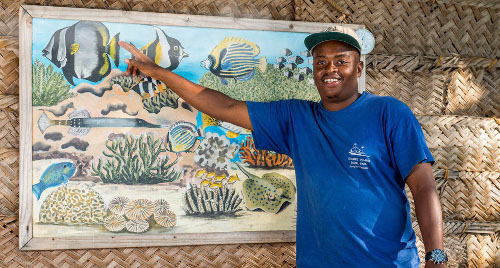
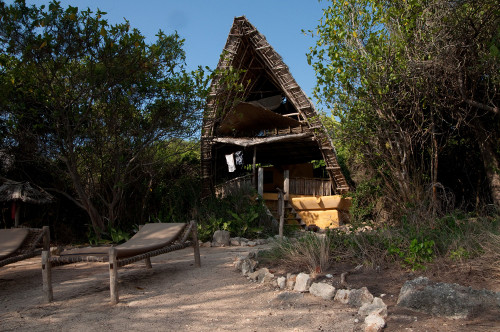
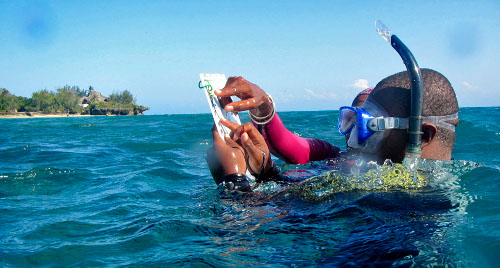
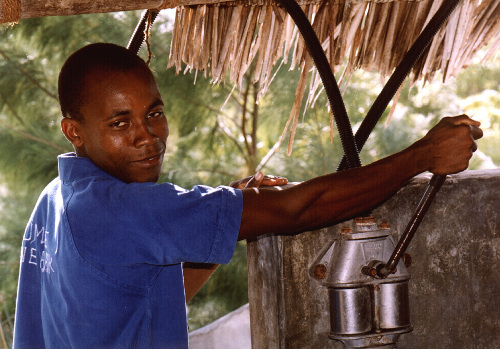
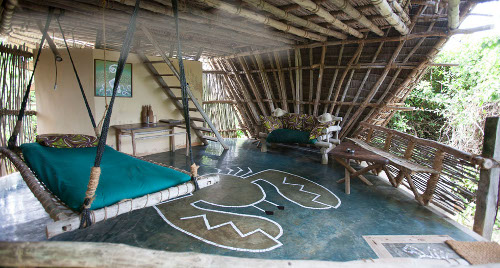
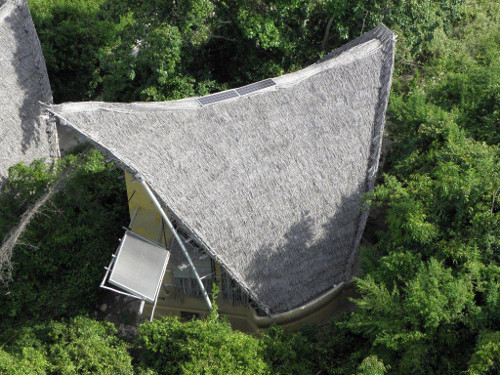
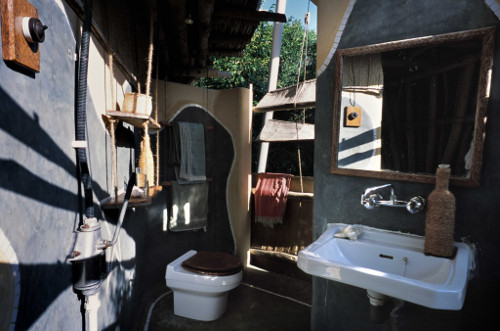
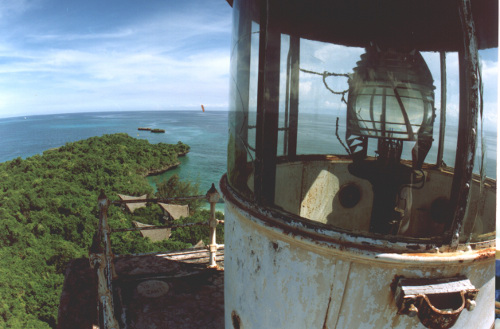

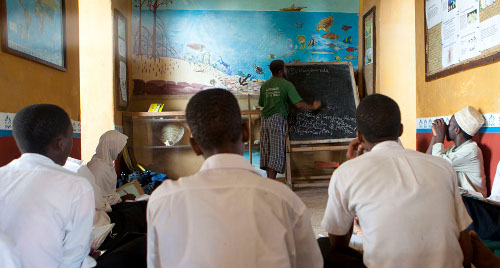
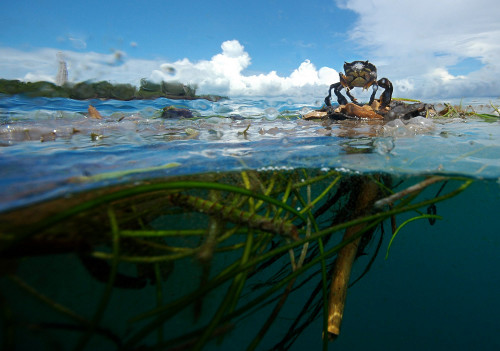

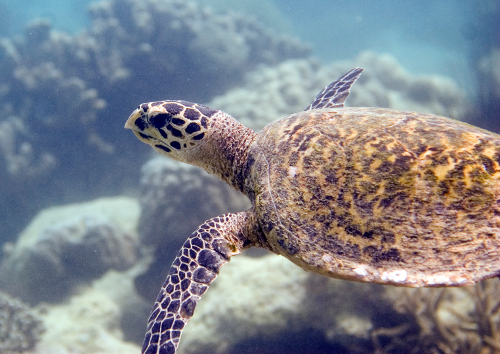
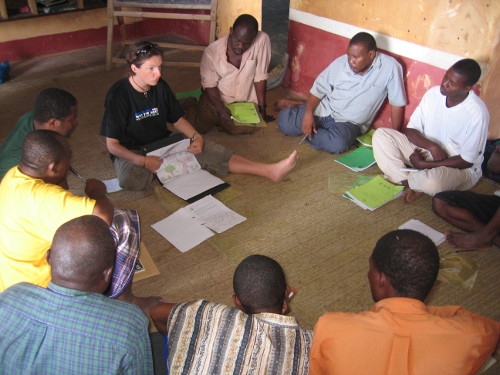
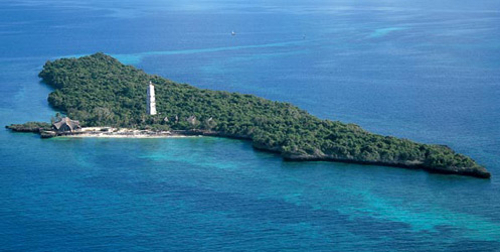
Employment preference is for people from nearby villages: 95% are Tanzanians, over two thirds from local communities. Though they have limited formal education, much on-the-job-training is given, with fishermen recruited and trained in data collection for research, park management and monitoring techniques for the reef and the forest to become as park rangers and stationed on the island, vital to community engagement with environment: A third of the staff are directly involved in conservation management and education and all other island staff, such as cooks, cleaners & waiters are also trained periodically in the basics of reef ecology, forest ecology, English language, ecotourism and eco-technology.
Gender is also strongly considered, with women given preference and currently forming 40% of the Chumbe workforce.
Local people are also offered income opportunities through the construction and maintenance of the ecolodge, food supplies, the out-sourcing of transport operations and handicrafts sold in the boutique. All organic soaps provided in the bandas are produced by a local women's co-operative.
There is also the income spill-over effect of the no-take zone and Chumbe Island’s for Payment for Ecosystem Services model, even mentioned in the UN Secretary General’s Rio+20 report in 2012, “research findings confirmed that fish inside the protected no-take zone travel out and increase their yields in the vicinity” supporting local fishermen’s benefits.
A key pillar in Chumbe’s vision, success and sustainability is its comprehensive Environmental Education programmes, raising awareness on the vulnerability and conservation of the marine and forest ecosystems and the importance of sustainable tourism, into which any profits are channelled, as explained by Head Ranger, Omari Nyange, who has already worked for over 20 years on the island:
The programmes offer students, teachers and community members free island excursions, training workshops and peer education sessions to seek and inspire solutions to environmental concerns that build on indigenous knowledge, culture and traditions.
Chumbe has run its Environmental Education programme since 1996. By September 2023, more than 12,000 participants had visited, with 843 excursions: 6315 local school children, 2580 national and international students 1454 teaching personel from over 100 educational establishments, and 1721 community members, including fishers, seaweed farmers, NGOs, bivalve collectors, environmental groups and government officials.
The Purpose
Chumbe Island founder Sibylle Riedmiller lived and worked in Tanzania and Zanzibar, where she witnessed no education, awareness or environmental protection for some of the most diverse coral reefs in the world, and little interest from the government for its value or tourism-generating opportunities.
A passionate conservationist, diver and development professional, it was clear to Sibylle that a marine park to learn about natural resources and to snorkel could be funded by tourists, so ecotourism would pay for the conservation of corals and education of local schoolchildren and fishermen at the same time.
Chumbe Island was thus set up from its conception to create an ecologically, socially and financially sustainable protected Marine Park and forest reserve.
Chumbe Island's conservation, research, comprehensive education centre and state-of-the-art ecolodge are fully-funded by ecotourism and provide further benefits for local people through Chumbe Island Coral Park Ltd (CHICOP) non-profit organisation. The company objectives are non-commercial, while operations follow commercial principles.
The bandas are designed for optimal outside rainwater catchment, captured by a cistern underneath the bungalow for showers in the downstairs bathroom.
The composting toilets have zero sewage and no flush as water is too sparse. Solar panels, unobtrusive on the top of the roof, provide charge for battery storage for energy requirements, including hot water heating.
Materials imported onto Chumbe Island are carefully screened to avoid any non-indigenous elements intruding into this spectacularly preserved environment. Only biodegradable detergents and soaps are used and laundry is washed off the island. The purchase of non-biodegradable products is avoided and non-biodegradable waste removed from the island and, where possible, recycled. Non-cooked fruit and vegetable waste is collected, composted and used for the composting toilets on the island.
Drinking water is provided by advanced filters (made in Switzerland) located on the island – mineral water in plastic bottles is available but not encouraged due to challenging waste management.
The island is not artificially lit at night to protect feeding and breeding patters of the nocturnal animals.
A dedicated research board informs visitors about the ongoing scientific research it facilitates with academic institutions and the scientific community around the world, with the most recent scientific publications and reports made available on the website. Current projects include monitoring of Sea grass, Coral reef, Ader’s duiker and Sea surface temperature logging.
Education, understanding, belonging and pride all support the sense of purpose created by founder Sibylle Riedmiller and diffused to each and every visitor to the island with honest heartfelt hospitality.
We connect you directly to the destination so locals benefit more:
Gallery
Chumbe Island Coral Park Options & Rates
Getting There:
Chumbe Island Coral Park is a short boat ride away from Stone Town, the heart of Zanzibar.
Fly to Zanzibar then take a 10km/10 minute taxi ride to the Mbweni Ruins Hotel, south of Stone Town (pre-bookable through Chumbe in advance).
Check-in time to Protea Hotel Mbweni Ruins is 9:30 am sharp for pre-registration. Scheduled boat departure to Chumbe Island is at 10:00 a.m and takes 30-40 minutes. Advance booking for all reservations is required.
Later boats to the island can be arranged. Chumbe can also collect you from the Airport, Port or town hotels.
Check out is at 08:00 for 09:00 return boat departure to Mbweni Ruins Hotel.
Click here for Chumbe Island Rates.
Includes:
Boat transport to and from the island on the morning transfer.
Eco-bungalow accommodation.
Full-board meals, sodas, water and snacks.
Boat, guide and equipment for snorkelling plus tuition in snorkelling, if required.
Guided walk through the forest trails and intertidal area (if low tide).
Access to climb to the top of a historic lighthouse
Guided walk to view the endangered coconut crabs in the evening
WIFI around the office (powered by solar).
All taxes (18% VAT inclusive).
Excludes: Taxi transfers, late boat transfers, alcoholic drinks (where available for purchase on the island) or items from the boutique.
Terms & Conditions: Cancellation Policy
Since Chumbe Island has only 7 eco-bungalows, their occupancy is very important to the success of the organisation. Therefore, the following cancellation charges apply:
More than one week before the reservation date: 50% charge of the overall price.
48 hours to one week before the reservation date:75% charge of the overall price.
Less than 48 hours before the reservation date: 100% charge of the overall price.
Bookings from on 24th December until 2nd January: 100% charge of the overall price.
Awards & Accreditations
2020 Green Destinations Sustainable Top 100 Destinations
2019 ITB Berlin Top 100 Sustainable Destinations; Winner, Best of Africa
2019 Responsible Tourism Tanzania Awards, Winner - Best in Supporting Conservation Projects
2019 TripAdvisor Best of Africa Hall of Fame for 10 Consecutive Years of Excellence
2018 World Travel & Tourism Council - Tourism for Tomorrow Awards: Finalist, Environment Award
2016 Trip Advisor Traveler's Choice - Winner
2015 Skal Sustainable Tourism Awards - Winner - Marine
2015 World Responsible Tourism Awards - Gold Winner
2016 Africa Responsible Tourism Awards - Gold Winner - Beach
2013 World Responsible Tourism Awards - Highly commended - Water Conservation
2012 Sustainia Award
2012 Energy Globe National Award - Winner -Tanzania
2011 The Long Run - first certified Gobal Ecosphere Retreat
2004 Responsible Tourism Award - Winner - Best Marine/Beach
2004 ToDo Award - Winner Socially Responsible Tourism
2004 World Legacy Award - Nature Travel
2004 Aga Khan Award for Architecture - Finalist
2003 Harpers & Queen, Harpers Abroad - Most Romantic Eco-lodge
2001 Aga Khan Award for Architecture - Finalist
2001 Global 500 Laureate 2000 award - Outstanding environmental achievement of the United Nations Environment Programme (UNEP)
2001 Conde Nast Traveler Magazine Ecotourism destination award - Winner - World
2000 - International Hotel & Restaurant Association - Green Hotelier of the Year
1999 British Airways tourism for tomorrow award - global winner
We connect you directly to the destination so locals benefit more:


